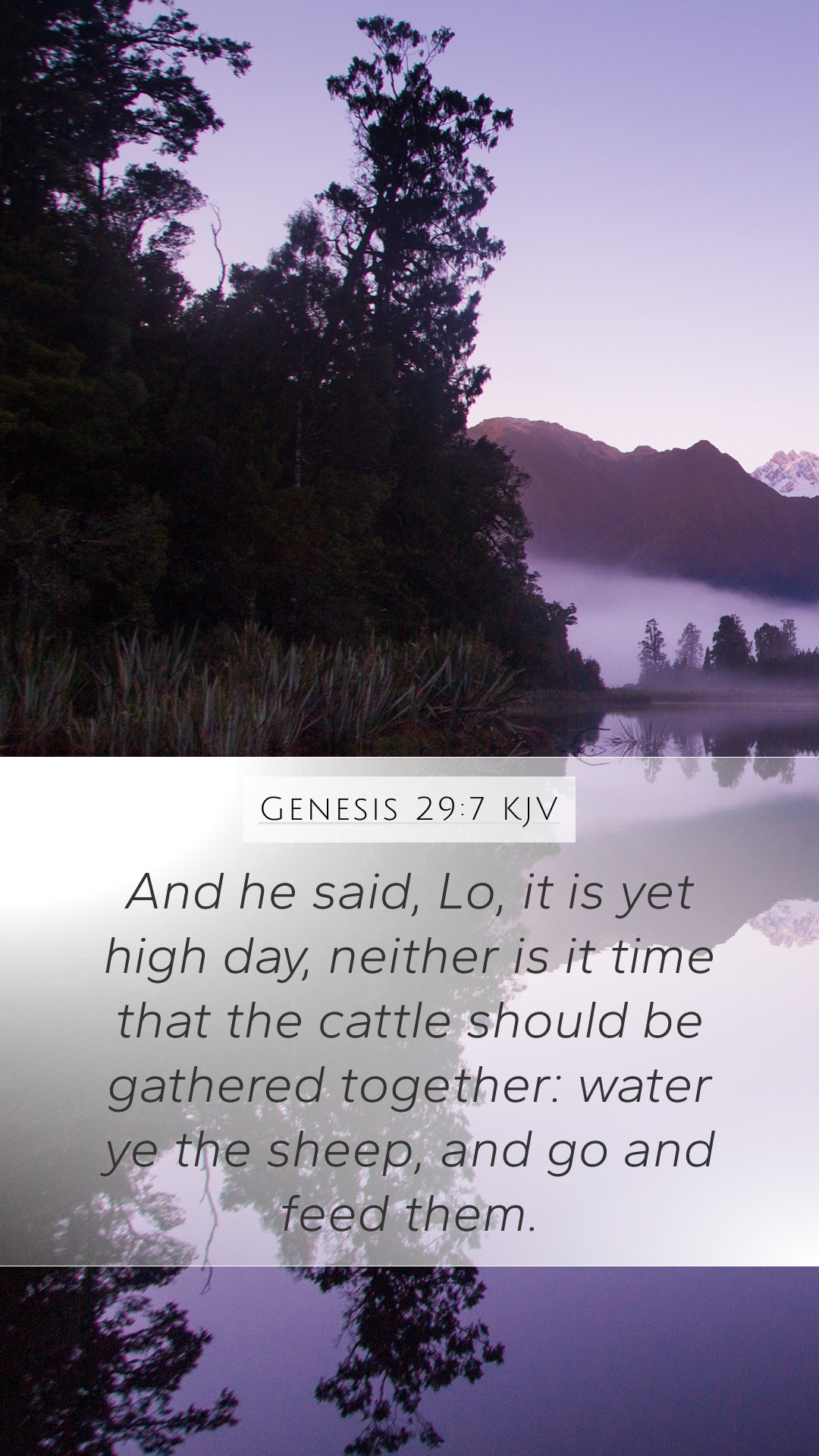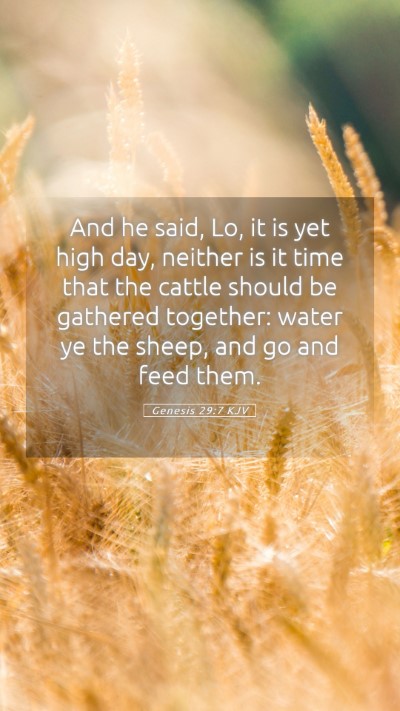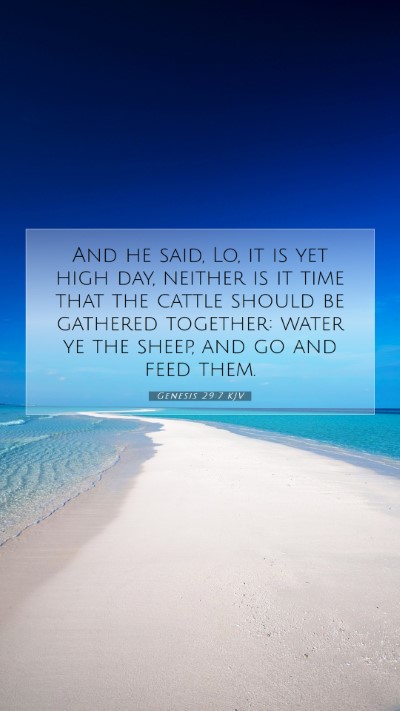Understanding Genesis 29:7
Genesis 29:7 states: "And he said, Lo, it is yet high day, neither is it time that the cattle should be gathered together: water ye the sheep, and go and feed them." This verse occurs within the narrative of Jacob arriving at Haran, where he encounters Rachel, Laban's daughter.
Bible Verse Meanings
The significance of this verse can be understood through various Bible verse interpretations and Bible verse commentaries. It illustrates the importance of patience and awareness of proper timing in our daily lives and spiritual journeys.
Commentary Insights
- Matthew Henry: Henry emphasizes the practical wisdom exhibited in Jacob's leadership. He notes that Jacob's suggestion to water the sheep first before gathering them reflects a profound understanding of the immediate needs of the animals, which can symbolize a greater need for care in human relationships and responsibilities.
- Albert Barnes: Barnes provides an interpretation that links this passage to Jacob's diligent character. He observes that Jacob’s words indicate a heart that values both the livestock and the well-being of those under his care, which can extend to modern applications of pastoral leadership and community responsibility.
- Adam Clarke: Clarke adds historical context, highlighting that this encounter marks a significant moment in Jacob's life—his transition from a fugitive to a man of purpose. By addressing the immediate tasks, Jacob sets the stage for later developments in his relationship with Rachel and the continuation of the covenant line.
In-Depth Analysis
This verse encourages Bible study insights focused on the importance of timing and preparedness. Jacob demonstrates awareness that the day is still young, signaling the necessity of planning our actions appropriately:
- Practical Lessons: Just as Jacob did not rush decisions but instead focused on caring for the sheep, we should ensure that we do not overlook our responsibilities. Understanding the meaning of Bible verses often translates into everyday actions.
- Symbolism of Sheep: In biblical literature, sheep often symbolize followers or those in need of guidance. Jacob's role as caretaker resonates with spiritual leaders today, emphasizing the duty to nurture and teach.
Historical Context
Understanding the historical context of Bible verses is vital to grasp their full meaning. Jacob's journey of escape is not merely a tale of individual trials but is emblematic of the larger themes of the Israelite heritage—struggle, providence, and divine promise.
Application to Daily Life
The verse challenges us to consider how we prioritize our duties and whether we are attentive to the needs of others. Applying Bible verses to daily life involves recognizing the little moments that can shape our futures significantly.
Additional Bible Cross References
- Exodus 3:1 - The calling of Moses, emphasizing the importance of waiting for God’s timing.
- Psalm 23:1-2 - The Lord as shepherd, providing for our needs like Jacob tended to the sheep.
- John 10:11 - Jesus as the Good Shepherd, paralleling the care that is required in leadership.
Conclusion
Genesis 29:7 serves as a reminder that in both our spiritual and everyday lives, we must be prudent in our actions. It provides valuable Bible study lessons that can deepen our understanding of the scriptures and offer practical applications in real life.


